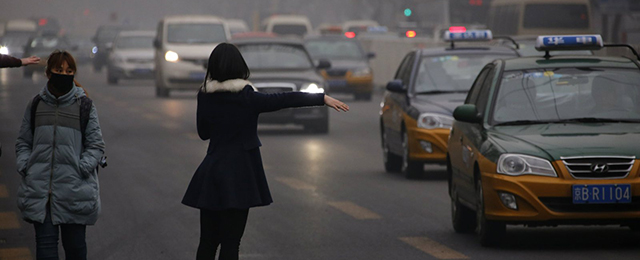It’s not as insane as you think.
For Uber, passengers in China are logging more than one million trips per day—about as many as the company was clocking in worldwide only six months ago, according to Forbes.
It’s also double the number of trips taken last month.
If that’s not enough to show you how much the Chinese love Uber and how very fast volume is scaling up in China, maybe this will: after nine months in Chengdu, the city is seeing 479 times the number of trips that New York did at the same mark.
Hangzhou is 422 times larger than New York at the same nine-month mark and it is adding 200,000 residents a week.
Early growth in Beijing has bested the Big Apple by nearly 30 times over.
Four out of Uber’s 10 largest cities are in China, now the largest market outside of the U.S., and “at the current growth trajectory, will most likely surpass the US before year-end,” Uber CEO Travis Kalanick said to investors in an email obtained by the Financial Times.
“To put it frankly, China represents one of the largest untapped opportunities for Uber, potentially larger than the US,” he said in the email. “Success in China, however, takes commitment over the long haul and a strong will, coupled with a unique understanding of the differences in China.”
For Didi Kauidi—which was formed by the merger of Didi Dache and Kuaidi Dache in February, in large part to put a cap on the rising costs of competing with each other and Uber—it’s an all-out drag race for pink slips.
Didi Kuaidi’s taxi operations in China are substantial, covering 360 cities and four million taxi rides a day, the company said in late May, according to the Wall Street Journal.
For perspective, Uber is only in 11 cities in China, again, already pushing the redline at one million trips per day.
The company plans on using its war chest to come on fast and furious in 50 more cities that have a population of more than five million this year.
Uber, which previously received a US$600 million investment from Baidu, will launch its fundraising round for China on June 22, with an expected valuation of US$50 billion.
Didi Kuaidi already has backing from Chinese Internet giants Alibaba and Tencent, according to WSJ. Its new round of funding would value the company at between US$12 billion and US$14 billion.
Both companies have recently been in the news, both on the mainland and in Hong Kong, as professional drivers of local, traditional taxi services protest against Uber-style, app-driven ride hailing services, which they say is unfair competition.
A confrontation in Hangzhou on Friday night prompted Uber to urge its drivers not to go the scene and instructed those already there to leave immediately, adding that it would use GPS to identify drivers that had refused to leave the location and cancel its contracts with them.
In a statement issued Saturday, Uber said it was strongly against any extreme behavior that could affect harmony and stability, WSJ reported.
With all that’s at stake for Uber in China, that’s a good move.
The San Francisco-based company launched its app in 2010 and began international expansion in 2012. As of the end of May, Uber service was available in 58 countries and 300 cities worldwide.
Current cities in China that provide the service are Beijing, Chengdu, Chongqing, Foshan, Guangzhou, Hangzhou, Qingdao, Shanghai, Shenzhen, Tianjin and Wuhan.






Be the first to comment on "Uber revs up for high-stakes battle in China"